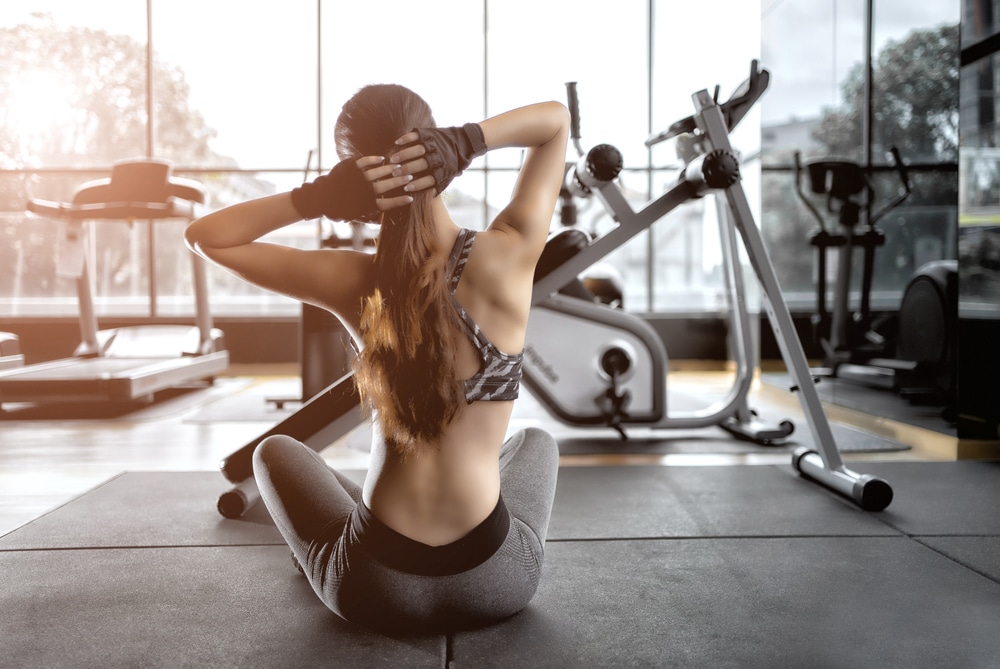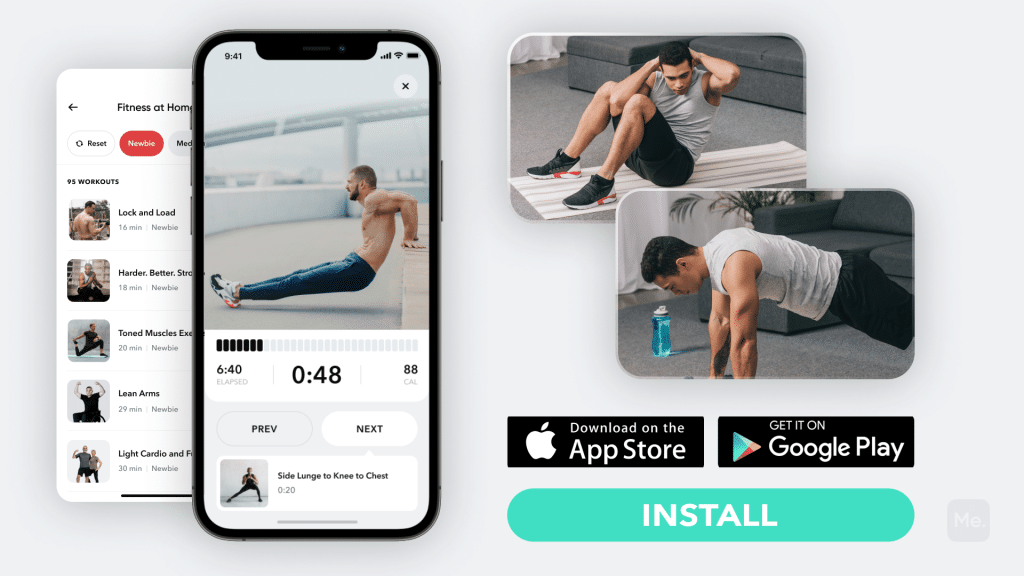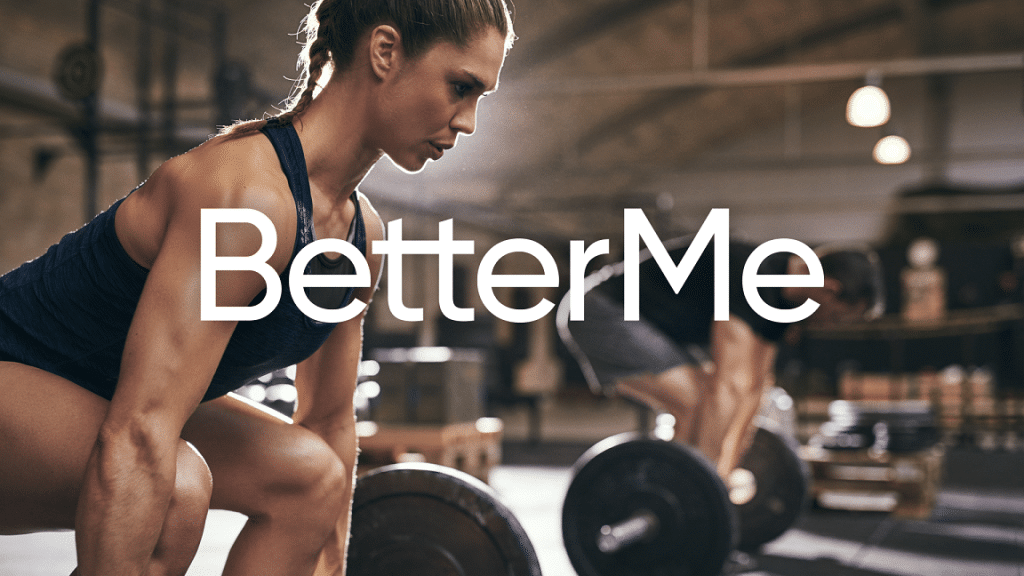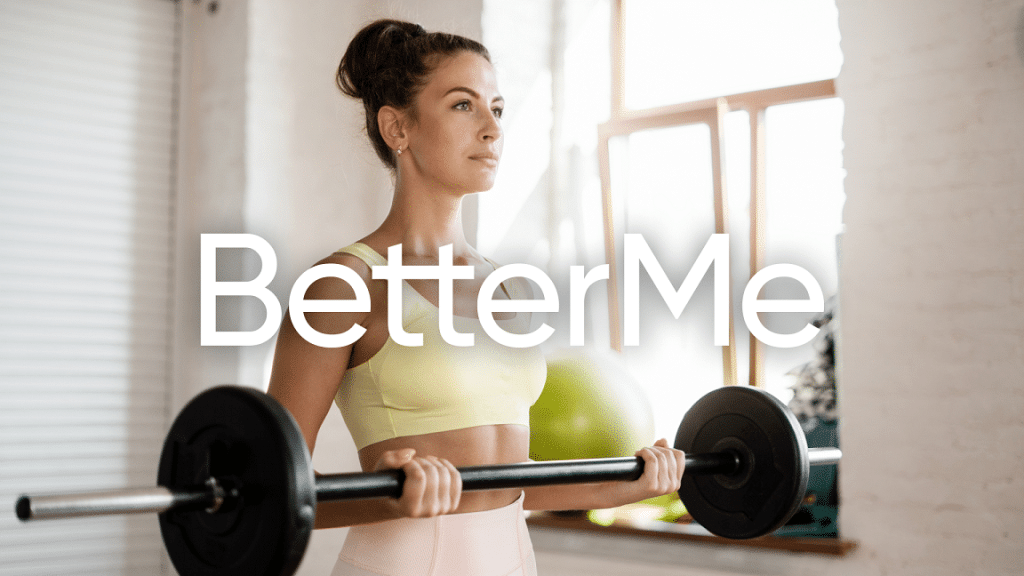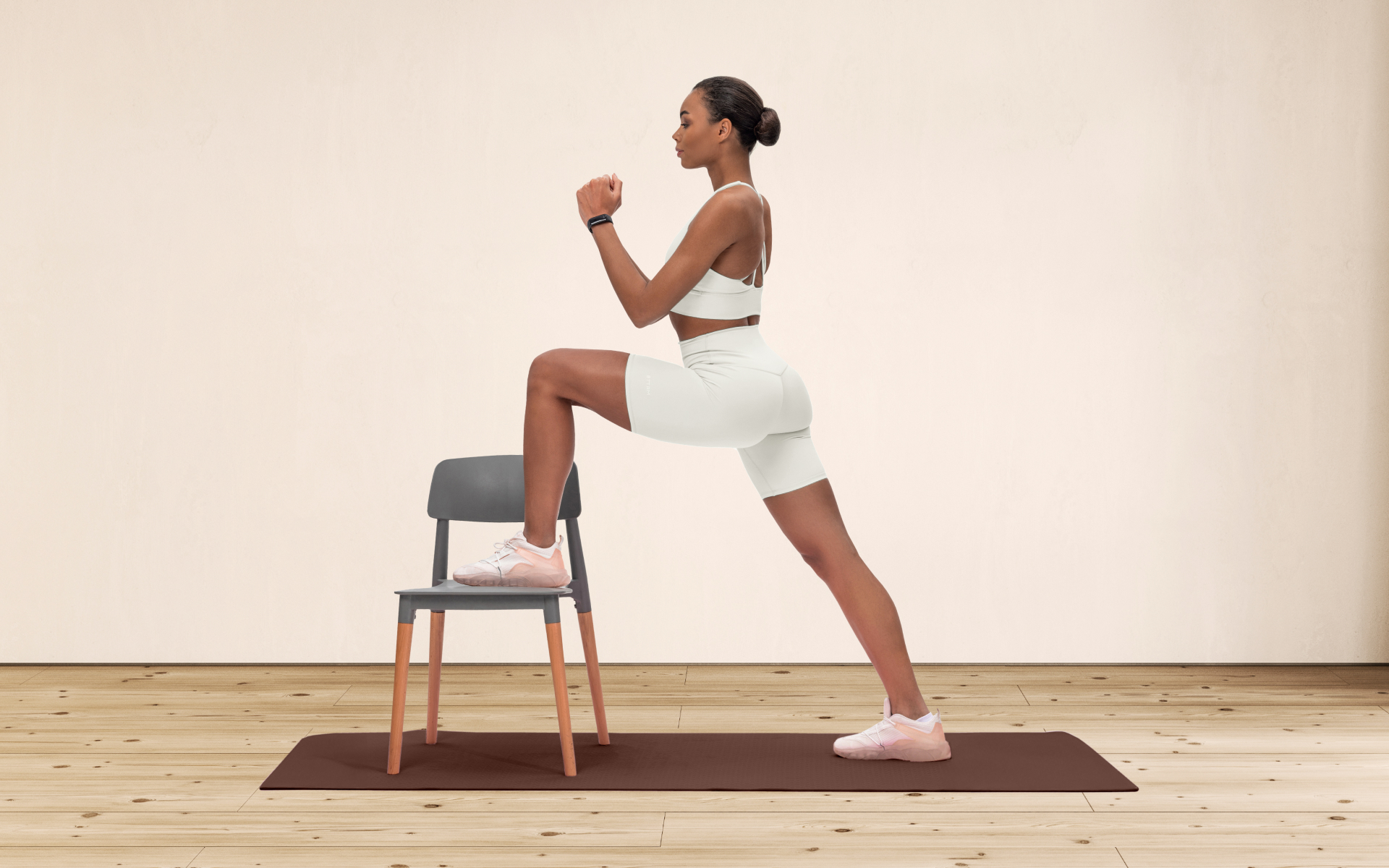The bench press is one of the most popular and commonly performed exercises in the world, and for good reason. It is a great exercise for developing upper body strength, particularly in the chest and triceps muscles.
Get your personalized
meal plan!
As a compound lift, the bench press also requires the use of other muscles such as the shoulders and back to stabilize the weight, making it a great exercise for overall upper body development.
While the bench press is a great exercise, there is often confusion about how much weight one should be able to lift at various ages.
This is likely due to the fact that there are so many variables that can affect how much weight one can lift, such as body weight, height, training experience, and genetics.
With all of these factors in mind, let’s take a look at what the experts have to say about the average bench press by age.
Read More: Push Ups Vs. Bench Press: Which Workout Is Better For Maximum Gains?
Does Age Matter?
The simple answer to this question is yes..and no. Age can be a factor that affects how much weight you can lift, but it is not the only factor. As we age, our muscles tend to lose some of their strength and size, which can make it more difficult to lift heavy weights.
However, this process can be slowed down or even reversed with regular exercise and weight training. So, while age might be a factor, it is not the only one.
Average Bench Press By Age For Men
Men can lift heavier weights than women, on average. The reason behind this is that men have more muscle mass and testosterone, both of which help to increase strength (1).
The table below shows the average bench press ability by age for men.
| Age | Average Weight |
|---|---|
| 20 to 29 | 100% of your body weight |
| 30 to 39 | 90% of your body weight |
| 40 to 49 | 80% of your body weight |
| 50 to 59 | 75% of your body weight |
As you can see, the average amount one should bench press decreases as we age. However, this does not mean that you will automatically lose strength as you age. With regular exercise, you can maintain or even increase your strength, regardless of your age.
Average Bench Press By Age For Women
Women tend to have less muscle mass and produce less testosterone than men, on average (1). This means that they are not as able to lift heavy weights as men, on average.
The table below shows the average bench press ability by age for women.
| Age | Average Weight |
|---|---|
| 20 to 29 | 100% of your body weight |
| 30 to 39 | 90% of your body weight |
| 40 to 49 | 80% of your body weight |
| 50 to 59 | 75% of your body weight |
As you can see, the average amount one should bench press decreases as they age. However, this does not mean that you will automatically lose strength as you age. With regular exercise, you can maintain or even increase your strength, regardless of your age.
If you wish to free yourself from all the extra pounds that have been weighting you down for way too long, start using the BetterMe app and overhaul your entire life!
How To Get Stronger
If you want to increase your bench press, there are a few things that you can do. Note that consistency is key, so make sure to stick to a regular exercise routine.
1. Understand How Progressive Overload Works
Progressive overload is a method of increasing the amount of weight that you lift over time. This can be done by adding more weight to the bar, doing more reps, or decreasing the amount of rest time between sets (2).
To do this you will need to increase the amount of weight that you lift each week. For example, if you currently bench press 100 pounds for 3 sets of 8 reps, you could add 5 pounds to the bar and do 3 sets of 8 reps next week.
You can also try doing more reps with the same weight. For example, if you currently bench press 100 pounds for 3 sets of 8 reps, you could do 3 sets of 10 reps next week.
Finally, you can try decreasing the amount of rest time between sets. For example, if you currently bench press 100 pounds for 3 sets of 8 reps with 2 minutes of rest between sets, you could decrease the rest time to 1 minute and do 3 sets of 8 reps next week.
2. Use A Variety Of Exercises
In addition to the bench press, there are a number of other exercises which can help you increase your upper body strength. These are often isolation exercises, which target specific muscles (9).
Some examples of isolation exercises that can help you increase your bench press are:
- Push-ups – these work your chest, shoulders, and triceps
- Bicep curls – these work your biceps
- Tricep extensions – these work your triceps
3. Focus On Your Form
Having good form is important when you are lifting weights. Not only will this help you to avoid injury, but it will also help you to lift more weight (12).
When you are doing the bench press, make sure that you:
- Lower the bar to your chest
- Keep your feet flat on the ground
- Drive the bar up with your legs
- Arch your back (do not round it)
Read More: Effective Overhead Press Variations To Try Today
4. Push Yourself To Failure
When you are working out, it is important to push yourself to failure. This means that you should lift the heaviest weight that you can for the number of reps that you are doing (6).
For example, if you are doing 3 sets of 8 reps, you should lift the heaviest weight that you can for 8 reps. If you can do more than 8 reps, then you should increase the weight.
Note that pushing to failure doesn’t mean overexerting yourself to the point of injury. Make sure to listen to your body and stop if you feel any pain.
5. Use A Spotter
If you are lifting heavy weights, it is always a good idea to have a spotter. This is someone who can help you if you get stuck under the bar.
A spotter can also help you to push yourself to failure, as they can help you to lift the heaviest weights possible.
6. Use A Weightlifting Belt
If you are lifting heavy weights, it is a good idea to use a weightlifting belt. This will help to support your back and avoid injury (4).
Always make sure to use a belt that is the correct size. A belt that is too big or too small will not provide the support that you need.
7. Work On Your Flexibility
Your flexibility and range of motion will affect your bench press. If you have tight muscles, it will be harder to lower the bar to your chest.
To increase your flexibility, you can try (13):
- Dynamic stretching – this is a type of stretching that involves moving your body through a range of motion.
- Static stretching – this is a type of stretching that involves holding a position for a period of time.
- Yoga – this can help to increase your flexibility and range of motion.
Yanking yourself back in shape has never been so easy with our game-changing fitness app! Start transforming your life with BetterMe!
8. Work With A Trainer
An experienced trainer can help you to perfect your form, identify your weaknesses, and create a workout plan that is tailored to your needs.
If you are new to weightlifting, it is always a good idea to work with a trainer before you start lifting heavy weights. This will help you to avoid injury and get the most out of your workouts.
9. Get Plenty Of Sleep
Getting enough sleep is important for recovery. When you are lifting weights, your muscles need time to repair and grow (10).
If you don’t get enough sleep, your body will not be able to properly recover from your workouts. This can lead to injury and decreased performance.
10. Eat A Balanced Diet
Eating a balanced diet is important for overall health and performance (3). When you are lifting weights, your body needs the right nutrients to repair and build muscle.
A high-protein diet is especially important for weightlifters (5). Foods that are high in protein include:
- Meat
- Poultry
- Fish
- Dairy
- Eggs
- Beans
If you are vegetarian or vegan, it is still possible to get enough protein from plant-based sources. These include:
- Tofu
- Tempeh
- Seitan
- Lentils
- Beans
- Quinoa
- Nuts
- Seeds
11. Stay Hydrated
Staying hydrated is important for overall health and performance (11). When you are lifting weights, your body needs water to help with muscle recovery.
It is recommended that you drink at least 8 glasses of water per day. If you are working out for more than an hour, you should also drink a sports drink to replace electrolytes (7).
12. Take Rest Days
It is important to take rest days so that your body can recover from your workouts. When you are lifting weights, your muscles need time to repair and grow (8).
If you don’t take rest days, you will not be able to properly recover from your workouts and this can lead to injury.
The Bottom Line
Your age does not determine how much weight you should be able to bench press. The amount of weight that you can lift depends on your strength, training, and fitness level.
If you are new to weightlifting, it is always a good idea to work with a trainer before you start lifting heavy weights. This will help you to avoid injury and get the most out of your workouts.
Eating a balanced diet and staying hydrated are also important for overall health and performance. And finally, don’t forget to take rest days so that your body can recover from your workouts.
DISCLAIMER:
This article is intended for general informational purposes only and does not serve to address individual circumstances. It is not a substitute for professional advice or help and should not be relied on for making any kind of decision-making. Any action taken as a direct or indirect result of the information in this article is entirely at your own risk and is your sole responsibility.
BetterMe, its content staff, and its medical advisors accept no responsibility for inaccuracies, errors, misstatements, inconsistencies, or omissions and specifically disclaim any liability, loss or risk, personal, professional or otherwise, which may be incurred as a consequence, directly or indirectly, of the use and/or application of any content.
You should always seek the advice of your physician or other qualified health provider with any questions you may have regarding a medical condition or your specific situation. Never disregard professional medical advice or delay seeking it because of BetterMe content. If you suspect or think you may have a medical emergency, call your doctor.
SOURCES:
- Circulating Testosterone as the Hormonal Basis of Sex Differences in Athletic Performance | Endocrine Reviews (2018, academic.oup.com)
- Complexity: A Novel Load Progression Strategy in Strength Training (2019, frontiersin.org)
- Defining a Healthy Diet: Evidence for the Role of Contemporary Dietary Patterns in Health and Disease (2020, mdpi.com)
- Effects of abdominal belts on intra-abdominal pressure, intra-muscular pressure in the erector spinae muscles and myoelectrical activities of trunk muscles (1999, pubmed.ncbi.nlm.nih.gov)
- Efficacy and consequences of very-high-protein diets for athletes and exercisers (2011, cambridge.org)
- Is Resistance Training to Muscular Failure Necessary? (2016, frontiersin.org)
- Practical Hydration Solutions for Sports (2019, mdpi.com)
- Recovery after exercise: what is the current state of play? (2019, sciencedirect.com)
- Single vs. Multi-Joint Resistance Exercises: Effects on Muscle Strength and Hypertrophy (2015, ncbi.nlm.nih.gov)
- Sleep and muscle recovery: Endocrinological and molecular basis for a new and promising hypothesis (2011, sciencedirect.com)
- Water, hydration, and health (2010, academic.oup.com)
- Weight training: Do’s and don’ts of proper technique (2020, mayoclinic.org)
- Yoga Is as Good as Stretching–Strengthening Exercises in Improving Functional Fitness Outcomes: Results From a Randomized Controlled Trial (2016, academic.oup.com)
